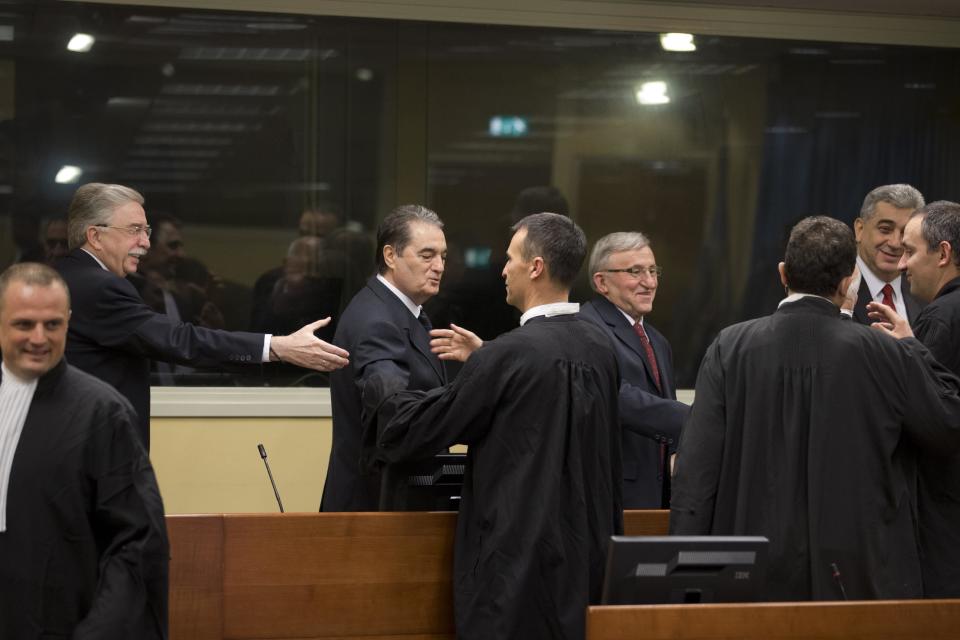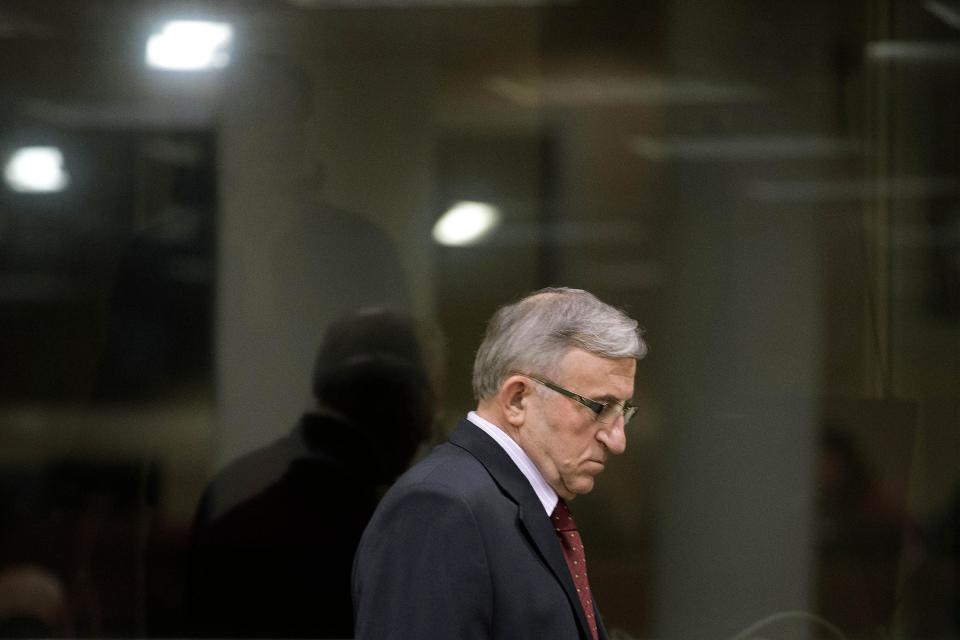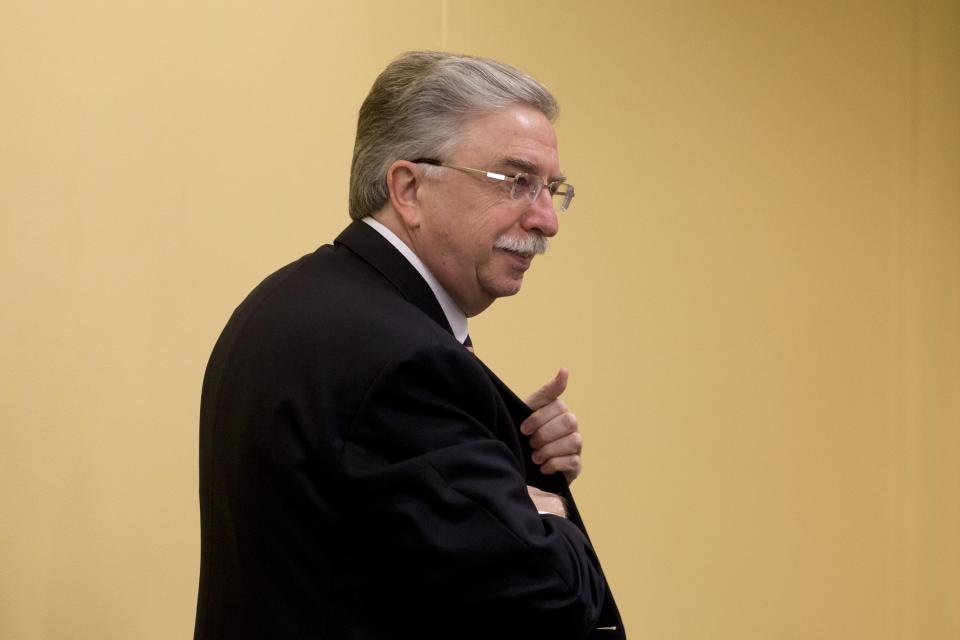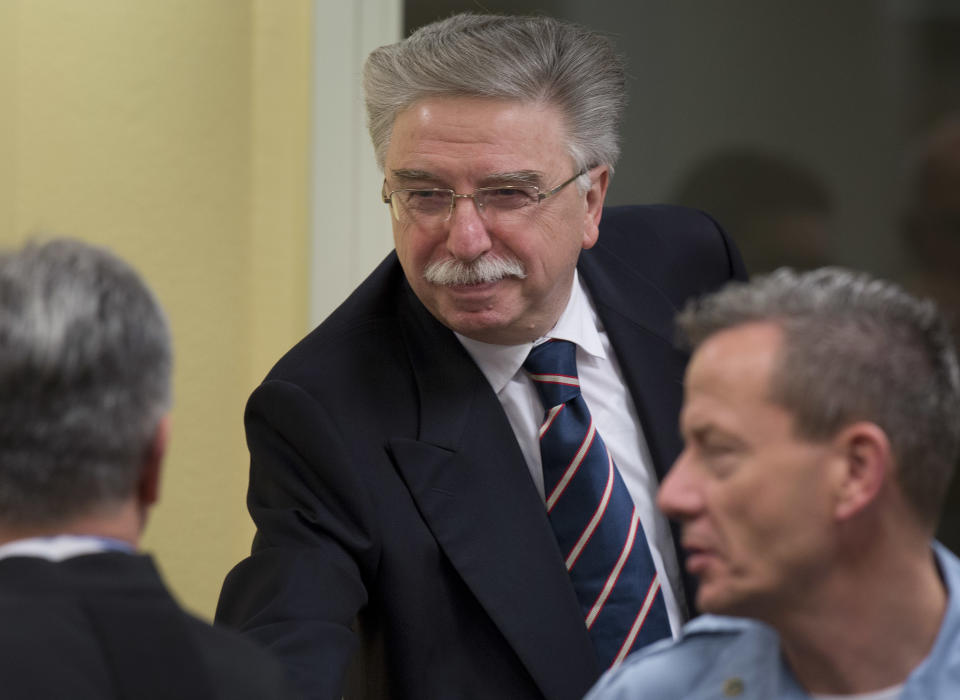UN court trims sentences of Serbs in Kosovo case
THE HAGUE, Netherlands (AP) — Three high-ranking Serbian officials had their sentences trimmed Thursday for atrocities in Kosovo, but Yugoslav war crimes appeals judges upheld key elements of a lower court's finding that leaders in Belgrade orchestrated crimes against humanity in Kosovo in 1999.
In a lengthy and complex appeals decision, judges at the U.N. court overturned parts of the men's convictions and cut their sentences.
Nikola Sainovic, Nebojsa Pavkovic, Sreten Lukic and Vladimir Lazarevic were convicted by the tribunal in 2009 for crimes committed against Kosovo Albanians during Serbia's deadly crackdown on ethnic Albanians in 1999. Former Serbian President Milan Milutinovic was acquitted at trial and prosecutors didn't appeal.
On Thursday, Sainovic had his 22-year sentence reduced to 18 years; Lukic's 22-year sentence was trimmed by two years; Lazarevic's 15-year term was cut by one year and judges left Pavkovic's 22-year sentence in place.
The appeals chamber overturned parts of the men's convictions for lack of evidence, clearing Pavkovic and Lukic of several murders because it could not be clearly established that the victims were not killed in battle. It also acquitted all four men of driving Albanians out of one town because it was not certain that Serb forces expelled them.
"Given my disbelief in this tribunal, I am very happy that Mr. Sainovic got his sentence reduced by four years," Sainovic's lawyer, Toma Fila, said. "That means he will be home next year."
At the time of the 1999 crackdown in Kosovo, Sainovic was deputy prime minister of Yugoslavia, Pavkovic was commander of the Third Army of Yugoslavia, Lazarevic commanded the Pristina Corps of the Yugoslav army and Lukic led the interior ministry and police in Pristina, Kosovo's capital.
Kosovo, a former province of Serbia, declared itself an independent state in 2008.
The trial verdicts came close to posthumously convicting former Serb strongman Slobodan Milosevic, with the tribunal calling him the most powerful commander of the Serb troops and military police who carried out a campaign of murder, rape and deportations that forced nearly 800,000 ethnic Albanians to flee Kosovo. NATO airstrikes later forced a Serb withdrawal from Kosovo in mid-1999.
In Kosovo, ethnic Albanians expressed dismay with Thursday's ruling.
"It's not a big surprise really," said Pristina resident, Esat Dauti. "The Hague (tribunal) has lost its meaning. Justice is not being served."
But Azem Vllasi, a former senior politician in Yugoslavia, said the court still established that the officials were guilty of the crimes despite cutting some sentences.
"The ruling does not diminish the responsibility that these people have for the crimes committed in Kosovo," Vllasi said. "We are talking about the main people from the military, from the administration and from the police that were directly implementing the orders of Milosevic here (in Kosovo)."
____
Associated Press writer Nebi Qena in Pristina, Kosovo, contributed to this report.





